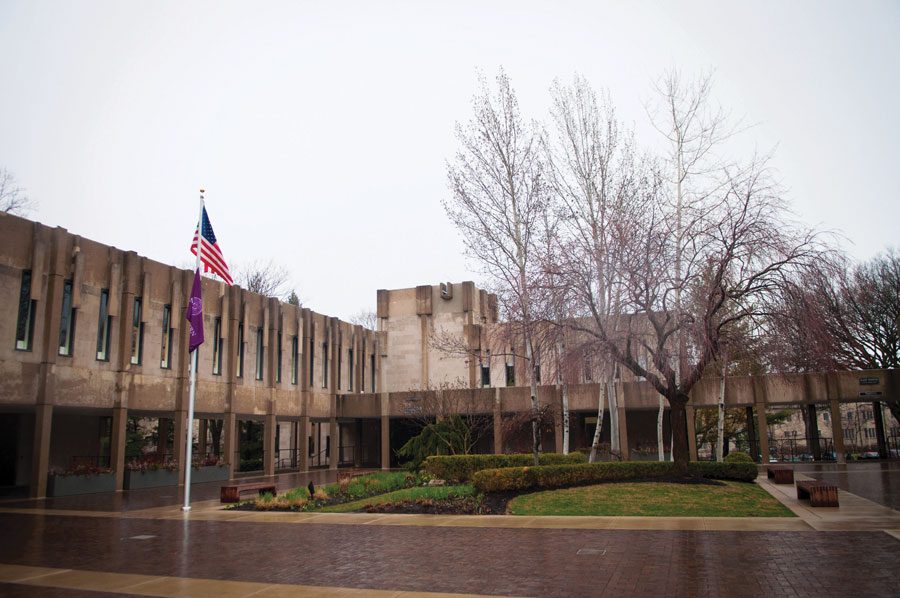Northwestern joins action collaborative to address sexual and gender harassment in higher education
Rebecca Crown Center. Northwestern recently announced a move to remote learning for the rest of Spring Quarter.
April 16, 2019
Weinberg sophomore Chloe Krugel, a neuroscience major and psychology minor, says she often feels like her male peers and professors have discounted her work due to her gender. Krugel said the climate of academia can be hostile for women.
Northwestern recently announced its commitment to address that problem, as well as other forms of gender-based discrimination, by joining the Action Collaborative on Preventing Sexual Harassment in Higher Education as a founding member.
According to a news release last week, the University will contribute financial support to the four year-long initiative and send members of the University’s senior leadership as representatives to its meetings.
The collaborative was formed after a report by the National Academies of Sciences, Engineering and Medicine concluded that 20 to 50 percent of female students and over 50 percent of female faculty have experienced gender harassment.
This contributes to what Carole LaBonne, the chair of the NU’s department of molecular biosciences, calls the “pipeline problem.”
“The most prevalent and probably the most broadly damaging form of sexual harassment of women is gender harassment, and how they define this is actions and comments on a daily basis that are belittling, dismissive, demeaning towards women or groups that are traditionally underrepresented in academia,” said LaBonne, who will represent Northwestern in the Action Collaborative. “This causes a lot of people to drop out.”
Along with LaBonne, Northwestern will be represented by Lindsay Chase-Lansdale, the vice provost for academics; Teri Odom, the chair of the chemistry department; and Sarah Wake, the associate vice president for equity.
LaBonne, who originally brought the collaborative to the University’s attention, said she was excited by the idea of addressing less overt forms of gender discrimination not touched on by the #MeToo movement.
“It’s very easy to say, ‘I’m not part of that problem,’” LaBonne said. “(The report) focused in more broadly in on climate as being so important. Actions and comments that are belittling, dismissive, demeaning — these add up to also being sexual harassment.”
The collaborative plans to meet for the next four years. LaBonne has already attended two meetings, with a third scheduled in June.
Wake said these meetings are brainstorms between institutions on how they can achieve the action collaborative’s four goals: Raising awareness about sexual harassment, sharing policies and strategies to combat it, contributing to research and developing a standard for measuring progress in reducing and preventing sexual harassment.
“It’s going to be really different and really exciting,” Wake said. “We’re going to have support from our peers that we haven’t before, and I think there’s really a lot of power in just the sheer number of people involved.”
Krugel said she was most interested in raising awareness about implicit biases and how they can contribute to a climate of hostility.
“The number one thing is awareness, because I feel like a lot of people aren’t even aware that they have these beliefs,” Krugel said. “Before you can fix the problem, I think you need to be made aware of it.”
Email: [email protected]
Twitter: @meganmuncie
Related Stories:
– Female Illinois lawmakers take steps to address sexual harassment in workplace
– RTVF updates production handbook with new sexual harassment guidelines
– Evanston adopts new state-mandated sexual harassment policy












